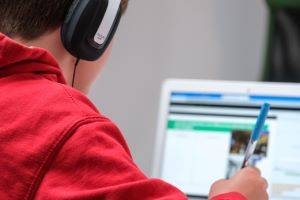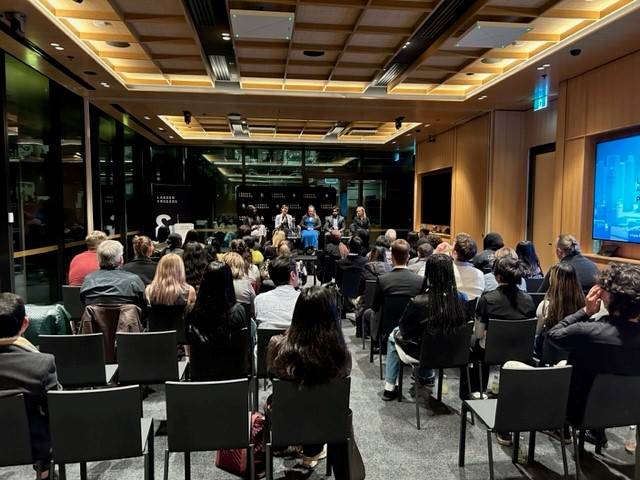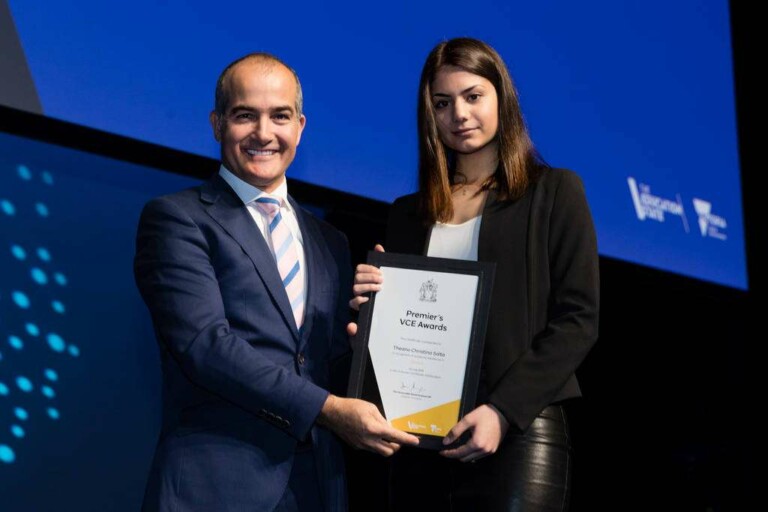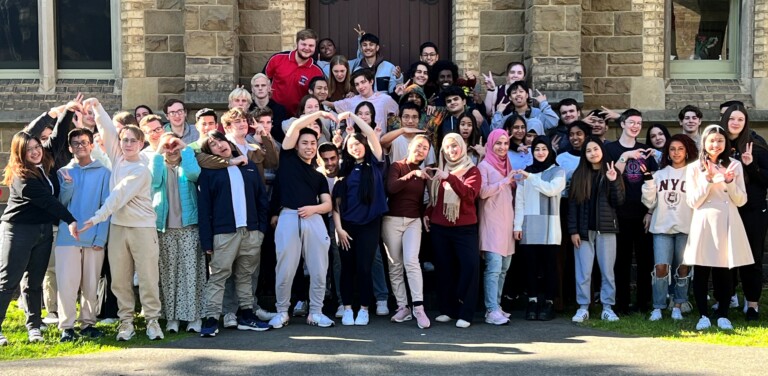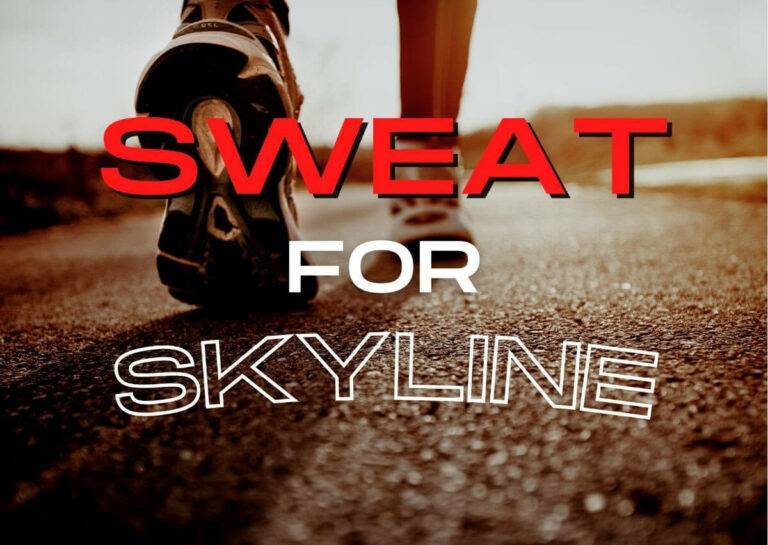2020 COVID Learning Report
What happened?
On Tuesday 24 March 2020 Victorian school students unexpectedly started their school holidays early, with no certain date for return. The Coronavirus Pandemic had just become very real for every family with school-aged children. For Skyline students, this was the start of a confluence of events that they could not have foreseen nor been prepared for, which exacerbated the impact of their financial and social circumstances.
Skyline students are high ability VCE students – including those with a growth mindset, leadership potential, gifted and/or academically talented – who experience significant life challenges due to level of social or financial capital or isolation.
The Victorian Government’s intention was to switch all students to learning online –from home– with some exceptions for students with parents working in front-line jobs, and for students with special needs.
Skyline Education Foundation immediately swung into action, moving planned face to face events online, sourcing computer resources and introducing a range of new contact opportunities for students and alumni. As early as March over 100 Skyline students participated in a very successful virtual event in conjunction with the National Gallery of Victoria earlier this year. The day of virtual walkthroughs and design activities uncannily included the KAWS exhibition, entitled Companionship in the Age of Loneliness.
Skyline realised that student wellbeing would need to be supported more than usual during COVID19. Program Managers referred twelve students and alumni to our partner Cairnmillar for over 50 sessions, while three students met with our referred psychologists. The Skyline COVID Fighting Fund distributed emergency support to the value of $8,076, including funding for technology connections and devices, rent, utilities and reading glasses.
Academic support came through the Skyline End of Year Exam Revision Series in partnership with UBS, which provided 14 online sessions for over 650 participants. The recordings are available more widely through social media. Year 12 students have been offered tutoring, Pathways advice, Edrolo’s online content for specific subjects and statements of support for Special Entry Access Schemes (SEAS).
EVIDENCE UNDERPINNING OUR ACTIONS
Wellbeing
Skyline students reported:
- Increased isolation during lockdown (missing friends and extended family), missing team sport and physical interaction with friends
- Missing physicality of interactions with teachers and being able to ask them questions and work on problems together
- Heightened anxiety re health, food insecurity, exams and future pathways
- Tension within family
- Insecurity of housing
- Concentration and motivation are extremely difficult after a day of online learning, and it is far more intense
and tiring than attending a face to face class.
Academic Progress
Skyline students reported too much work was being assigned by teachers during remote learning and they felt they needed extra academic support. Some alumni in university have found it very difficult to self- manage and hold themselves to account which is needed when they don’t have the usual accountabilities that face-to-face activities provide.
A Grattan Institute article in The Conversation estimated that roughly around one in four students will need help to catch up, particularly students from low socio-economic families, Indigenous backgrounds and remote communities, as well as students experiencing poor mental health.
The graph below shows the disparity between students of high and low socio-economic backgrounds. Their report recommended that $1 billion nationally should go towards small-group tutoring provided by young university graduates and student teachers should be hired as tutors where possible

Technology and Online Learning
Pandemic or not, senior students need access to a computer, preferably not shared, to receive school information, subject resources and create assignments. Old laptops are not suitable for the latest software used by schools. In 2019-20, Skyline has facilitated the provision of computers to more than 30 students (17 coming from State Schools Relief).
Universities have also found that many students do not own a laptop and are using their mobile phones to engage with learning, attend lectures and zoom meetings, using their data allowance quickly. The small screen is not optimal for all learning activities. Some resorted to sitting on cold benches outside public libraries to access a wifi connection.
Access to a reliable network connection is also a problem for many in Australia. The Digital inclusion Index provides data showing the digital divide’. Skyline students reported inadequate internet connections, data, bandwidth & amp; speed (latter especially in rural areas, and some families can only afford the lowest /cheapest connection which isn’t enough for online classes).
With greater knowledge of the constraints to educational opportunities, public demand should increase for higher-quality broadband provision, especially for regional and remote users, but also in metropolitan blackspots.
Further information: https://digitalinclusionindex.org.au/
Space and Time
Reflecting the graph above, Skyline students reported:
- inability to get away from family and small spaces they live in. Some alumni living at home with parents have experienced extra strict rules and cultural overlays in this time of uncertainty
- sharing space with siblings / families makes it difficult to study no specific study space of their own (usually kitchen table)
- getting into a routine was difficult, especially for families where parents/ guardians have to work and Skyliners babysit younger siblings
- the discomfort of sitting in a chair for many hours especially if the classes are recorded and not interactive, or are content led rather than activity led
Finance
The loss of casual jobs, especially in hospitality and retail, affected students directly, especially as many support their families. Casual workers were not able to access Jobseeker and reduction in hours affected parents in some cases. Universities offered cash bursaries as well as devices. Changes in Jobseeker and Jobkeeper payments will further affect Skyline families later in the year.
Skyline has a slight majority of female participants. George Megalogenis has used the term ‘pink-collar recession’ to describe what he fears will be a disproportionate effect of COVID19 on girls and women. Women’s Agenda, McKinsey and Global Partnership have written on the local and global effects.
Collective Impact
Where communities work together there are signs of success in addressing needs. Skyline has acted as a broker connecting students with support services.
The Dusseldorp Forum considered Australian case studies and found these actions were important:
- Supporting the local service system to stabilise and leverage existing resources;
- Preventing the most vulnerable from falling through the cracks;
- Ensuring community members are able to continue to access essential supports;
- Giving the community a voice in response and recovery; and
- Keeping people informed, connected and safe.
These actions suggest that outcomes have been the result of a range of decisive actions including: partnerships and collaboration; adaptation and innovation; bridging the gap between the service system and the community; advocating on behalf of the community to the wider system; and, tailoring communications to suit local contexts and resonate with local audiences.
References and other reports
Physical contact and mental health
Uncertainty about the future is likely to be a continuing concern. Some recommendations from the Pivot report make emotional well-being for all stakeholders a key area of focus.
- Prioritise instructional support for students once they get back to the classroom: 80% of teachers believe that students will need extra additional support when they get back to the physical school
- Provide interventions for high-need populations (including primary students): Based on both our study and existing research, students of low socioeconomic status, students with disabilities, indigenous populations and younger students are being impacted disproportionately by the shift to distance learning. We suggest that interventions for these groups be implemented where appropriate to ensure more equitable outcomes.
- Increase opportunities for relationship building: The results of the survey indicate that current relationships between students and teachers are at risk due to the shift to distance teaching.
- Prioritise student feedback: Student voice and agency often come last when prioritising education research and initiatives. It’s clear from the analysis that teachers want feedback from students as it provides the best chance for responding to student needs effectively.
Related information:
- https://pursuit.unimelb.edu.au/articles/how-do-we-teach-students-about-their-wellbeing-online
- https://blogs.griffith.edu.au/learning-futures/prioritising-care-and-compassion-in-learning-and-teaching-during-the-covid-19-crisis/
- https://aifs.gov.au/cfca/webinars/preparing-young-people-leave-care-during-covid-19
- https://evidenceforlearning.org.au/research-and-evaluation/evidence-reviews/health-and-wellbeing-systematic-review/
- https://www.pivotpl.com/wp-content/uploads/2020/05/Pivot-Professional-Learning_State-of-Education-Whitepaper_April2020.pdf
Academic Progress
Technology and online learning
Finance
- https://www.abc.net.au/news/2020-07-18/australia-coronavirus-supplement-jobkeeper-children-in-poverty/12467672?fbclid=IwAR32TW4km06Ik5R8dlI0UUqEvfbTcgQRRWcMHxcMSSLKAO6t-X03yL21cYc
- https://www.mckinsey.com/featured-insights/future-of-work/covid-19-and-gender-equality-countering-the-regressive-effects#
- https://womensagenda.com.au/latest/how-covid-19-risks-reversing-the-gender-equity-gains-made-by-women-in-stem/
- https://www.globalpartnership.org/blog/educating-covid-recovery
Collective Impact
- https://dusseldorp.org.au/wp-content/uploads/2020/06/Place-based-resilience-report-2020-1.pdf
- https://stateschoolsrelief.org.au/
DET reports
NZ report
- Closing the Digital Divide during the COVID-19 Lockdown: Student, Whānau and Staff Perspectives, https://9dce24cd-9dc0-4130-974f 92f95f164beb.usrfiles.com/ugd/9dce24_79332a39f2924734856ffa3b5a3ababf.pdf
Report created by the Futures Committee of Skyline Education Foundation 2020.

